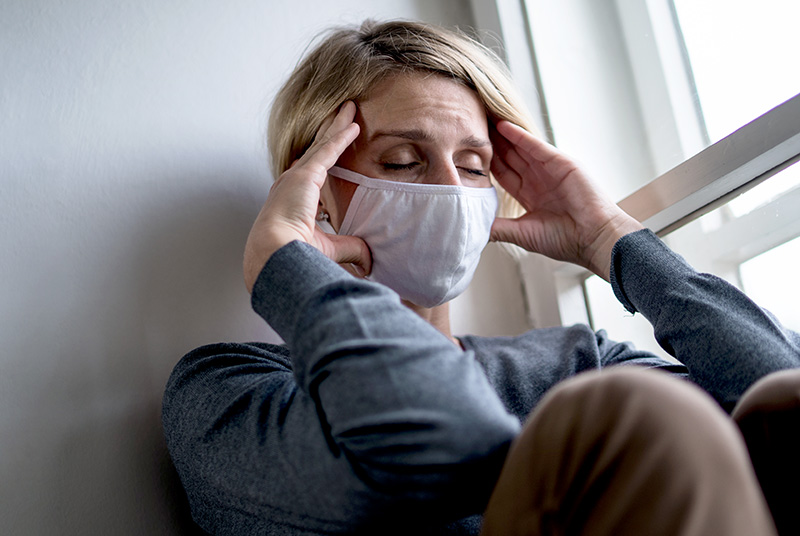As our communities move forward with re-openings and opportunities to return to the workplace, send kids back to school or socialize with friends and family, you may find yourself experiencing fear and anxiety – especially if you’ve been self-isolating or in quarantine for a long period of time. And you are not alone. According to the American Psychological Association, almost half of Americans surveyed report feeling anxious when faced with activities that pre-pandemic would have felt totally safe and normal.

Here are some tips for reducing “re-entry anxiety” as you transition back to your pre-COVID life:
1. Your feelings are okay. Understand that your feelings and anxieties are valid regardless of how others are dealing with this. This is a situation we have never encountered before. There are many paths forward and no right way.
2. Start slow. As you look for practical ways to begin living parts of your life that were put on pause, know that small steps are perfectly okay. Activities like taking a walk or grabbing a meal outside with a family member or friend provide low risk opportunities that build confidence and help you reconnect socially.
3. Start soon. Social isolation has both short- and longer-term mental health impacts. The longer you avoid things that make you anxious the harder they will be to overcome.
4. Try to separate caution and fear. If you are still isolating because of fear and not by choice, learn more about the virus, how it’s transmitted, and how you can protect yourself.
5. Practice relaxed breathing. Anxiety can trigger sweaty palms, shallow breathing, racing heart and muscle tension. If you feel yourself becoming anxious, concentrate on taking controlled, deep breaths. You will feel better.
6. Tune off and tune out. Avoid constant input and feedback from the outside world. While it is important to stay informed, when it comes to anxiety too much information can be a bad thing. Give yourself some “screen free” time each day and you will be happy you did.
7. Practice self-care. Get enough sleep, exercise, and aim for a healthy diet. Use your vacation time. Do something you enjoy every day. Connect with friends to build your sense of belonging.
8. Stick with hobbies. Keeping up the new pastimes and hobbies you started during quarantine will give you an ongoing sense of accomplishment which feels good. Positive emotions can help reduce negative emotions that lead to stress.
9. Stay positive. Acknowledge and celebrate successes, no matter how small. Instead of thinking about what you are too worried to do, focus on what you have accomplished and good things yet to come.
10. Remember you are not alone and get help when you need it. If you are having a hard time seek professional help. In addition to in-person counseling, many therapists and psychiatrist are offering to see patients remotely. If you are struggling with anxiety, teletherapy may be a good option.
Additional Resources
This is a challenging time, and you have every right to take things at your own pace. The important thing is that you make decisions that are right for you. As you navigate your way forward, here are some other resources to keep in mind.
Tips to manage anxiety and stress:
- Tips to Manage Anxiety and Stress | Anxiety and Depression Association of America, ADAA
- Anxiety management strategies – Beyond Blue
Signs and symptoms of mental health problems in children:
Helping children cope:
Teenagers and reopening:
Managing COVID depression:
Self-care tips:
All it takes is 10 mindful minutes- Ted Talk:
Free Meditation Apps:
- Insight Timer – #1 Free Meditation App for Sleep, Relax & More
- A NY state of mind – Headspace

Donna Lynn Taylor, MSN, RN, CCM
If you or a loved one are feeling overwhelmed with emotions such as sadness, depression or anxiety, call the National Crisis Line at 1-800-273-TALK (1-800-273-8255) or text BRAVE to the crisis text line at 741741. A trained counselor will help you de-escalate your situation and connect you to supports locally.
Donna Lynn Taylor, MSN, RN, CCM, is Clinical Director, Personal Wellness Plan (HARP) at Healthfirst.



